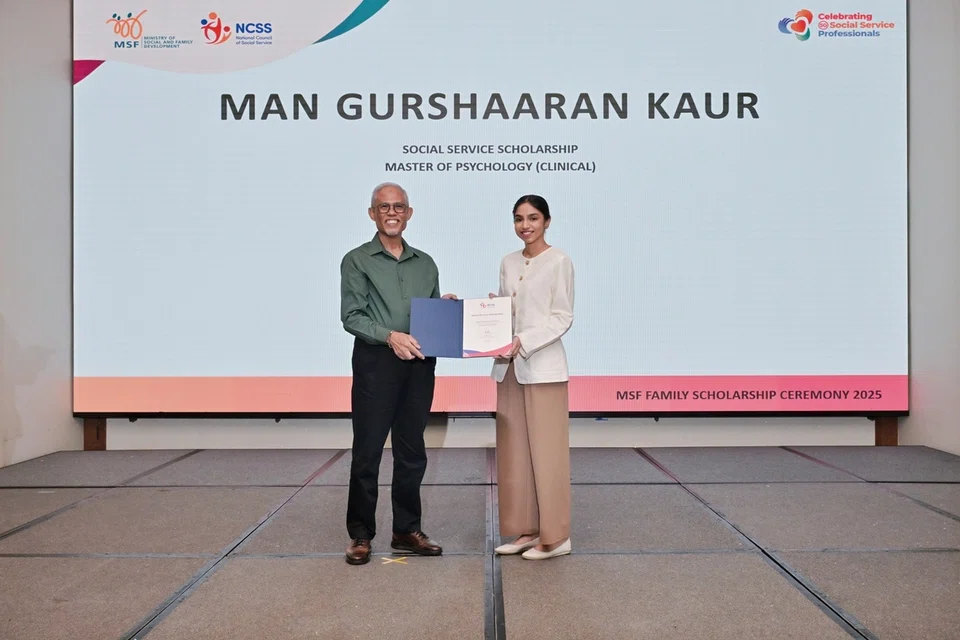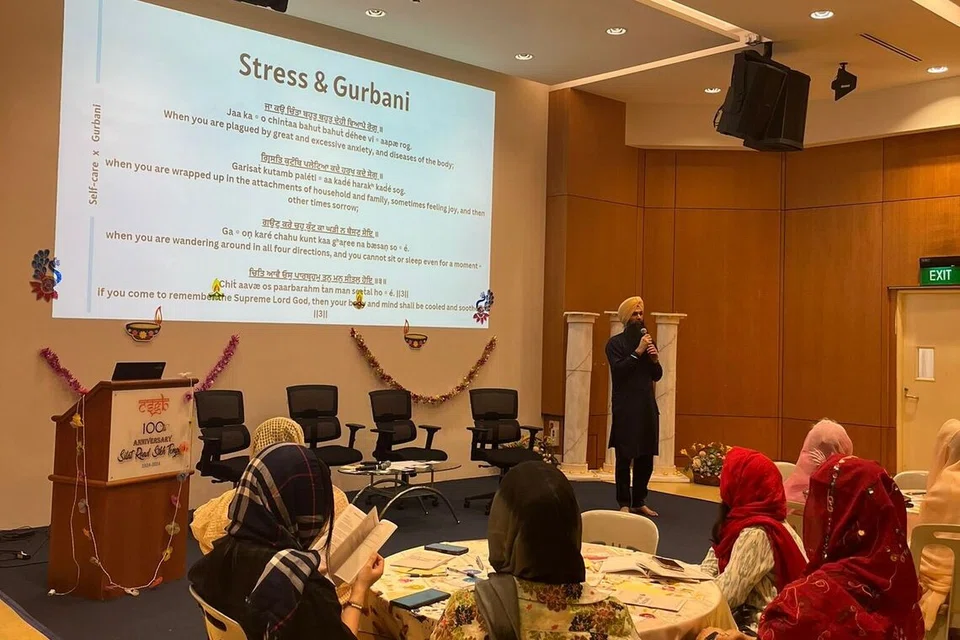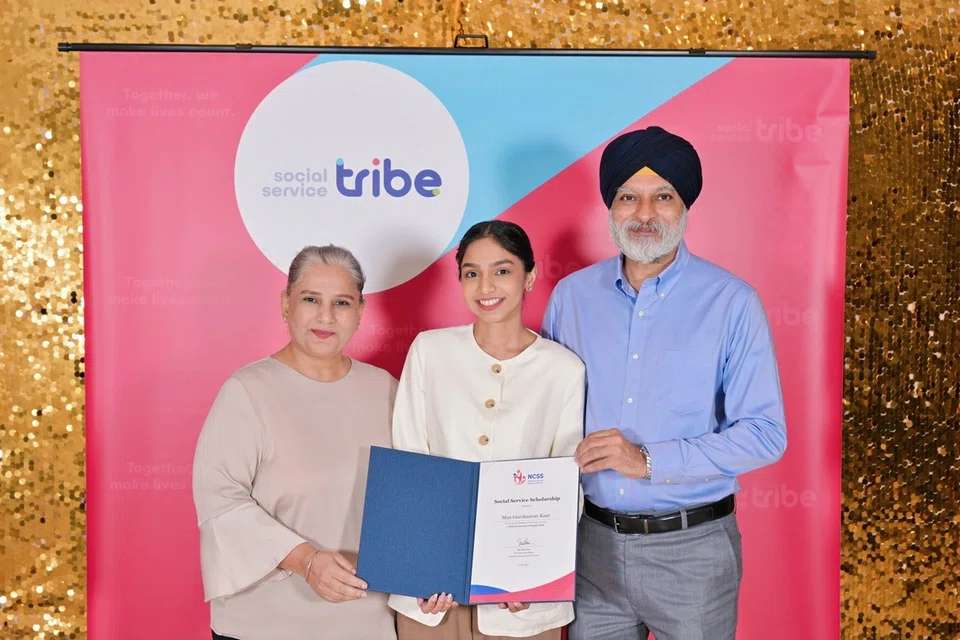Volunteer work in the Sikh community and dedication to social work earned Ms Shaaran Kaur, 27, the Social Service Scholarship from the National Council of Social Service to pursue a Masters of Psychology (Clinical) at the National University of Singapore (NUS).
Mr Masagos Zulkifli, Minister for Social and Family Development (MSF), presented her the award at the MSF Family Scholarship Ceremony on July 21.
She hopes the master’s degree, through placements and coursework, will strengthen her ability to lead more initiatives that normalise mental health conversations.

Her undergraduate degree in psychology at NUS also equipped Ms Shaaran with a deeper understanding of the underlying factors concerning mental health.
She started her career in the social service sector, first as a case executive and later as an associate psychologist at Chen Lu San Methodist Children’s Home.
Ms Shaaran, alongside three co-facilitators, conducted a first-of-its-kind mental health workshop at the Sikh Centre, focusing on self-care and exploring its alignment with Sikh teachings in Oct 2024.
The three pillars of Sikhism: Seva, Simran and Sangat – selfless service, the remembrance of God through meditation and community – were discussed as ways to promote well-being and alleviate anxiety. To Ms Shaaran, these tenets are similar to the psychological concepts of finding purpose, practising mindfulness, deep breathing, and social support.

“I realised that many of the ideas in psychology are also spoken about in Sikhism, we just haven’t been tying it together,” she said.
Organised by the Central Sikh Gurdwara Board, the workshop took on a relaxed, tea session-style format where about 35 to 40 attendees were grouped into six tables, each guided by one of the four facilitators.
They used cards displaying various emotions and group sharing to make the session more conversational, even including religious leaders as co-facilitators so participants would feel safer discussing mental health in shared spaces.
For the more reticent elders, Ms Shaaran also created a bilingual English-Punjabi resource kit with mental health helplines, books and podcasts to make such information more accessible.
Despite these efforts, encouraging people to open up to each other still posed a significant challenge, Ms Shaaran noted.
She explained that in the tight-knit Sikh community, many keep to themselves for fear their problems will be spread around family and social circles. “There is quite a deep sense of mistrust, and I am still trying to figure out how we can break past that,” she said.
The inability to open up is not unfamiliar to Ms Shaaran, who wasn’t able to voice out her problems as a victim of bullying during her formative school years.
“I’m like the minority of the minority as a Punjabi girl. I would come into school with very long hair and not eat meat, so I was very different,” she said.
It was not until she entered Anderson Junior College that she found friends who emotionally supported her. “I only got encouraged to talk about mental health through my friends first,” she explained.
Eventually, she brought those conversations back home and over time, her family became more receptive to discussing mental health, giving her the strength to support others around her who struggled to reach out or express their concerns.



